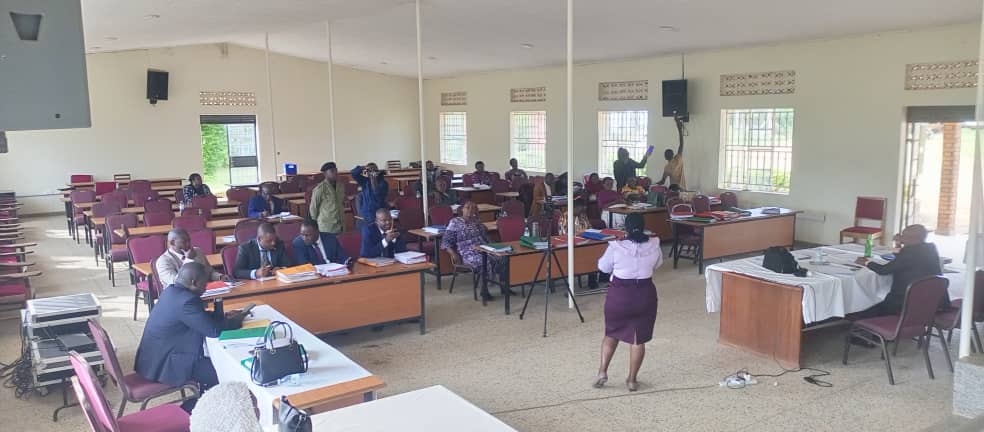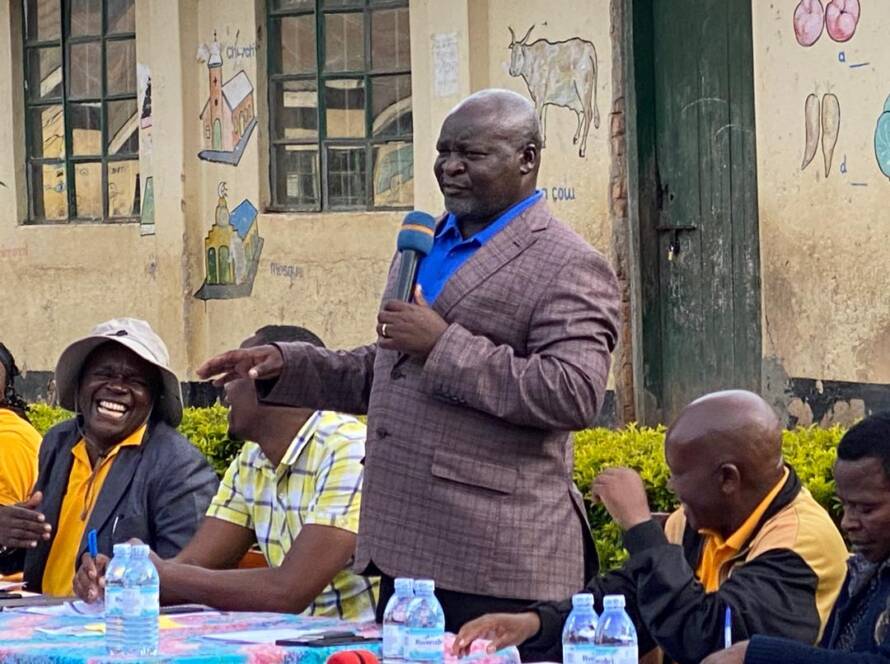

By Obed Kankiriho
Kanungu District Council has expressed concern over persistent service delivery challenges, despite recording strong performance in central government funding for the 4/2025 Financial Year.
During a council meeting chaired by District Speaker Frank Farah Byaruhanga on 14th October 2025, the District Chairperson, Eng. Sam Kajojo Arinaitwe, reported that the district achieved 98% overall revenue performance, amounting to Shs 57.7 billion. However, he noted that locally generated revenue remained low at only 75%, largely due to weak enforcement of vehicle parking fees and hotel taxes.
Kajojo cautioned that the district risks over-reliance on central government transfers unless alternative revenue sources are strengthened.
Road infrastructure was highlighted as one of the district’s most pressing concerns. Kajojo revealed that key transport routes such as Kijubwe–Kiringa and Rutenga–Kinaba–Kiziba–Mpungu remain impassable, hindering trade, access to health facilities, and school attendance. The council resolved to lobby the Uganda National Roads Authority (UNRA) to prioritize rehabilitation of these roads, warning that further delays could stall economic growth.
Despite continuous investment in water projects, only 47,676 out of 69,518 households in Kanungu have access to clean and safe water. Women and children in rural areas continue to trek long distances in search of water. Kajojo called for the speedy repair of boreholes and completion of gravity flow schemes, describing access to clean water as a “human rights and public health issue” rather than merely a development goal.
With the majority of Kanungu’s population under 30, the district chairperson also raised concern over unemployment and lack of skills programs, which he said are fueling dependency. He urged targeted interventions in youth skilling, agricultural financing, and enterprise development to harness the potential of the youthful population.
Meanwhile, the Kinkiizi Development Company Ltd, a major tea producer and exporter, petitioned the council to enact bylaws regulating the tea sector, citing unfair competition and exploitation of smallholder farmers.
According to District Communications Officer Twongyeirwe Mwajuma Twaha Adams, the company requested the council to establish minimum pricing and factory operation standards to protect local producers and ensure sustainability in the tea industry.



